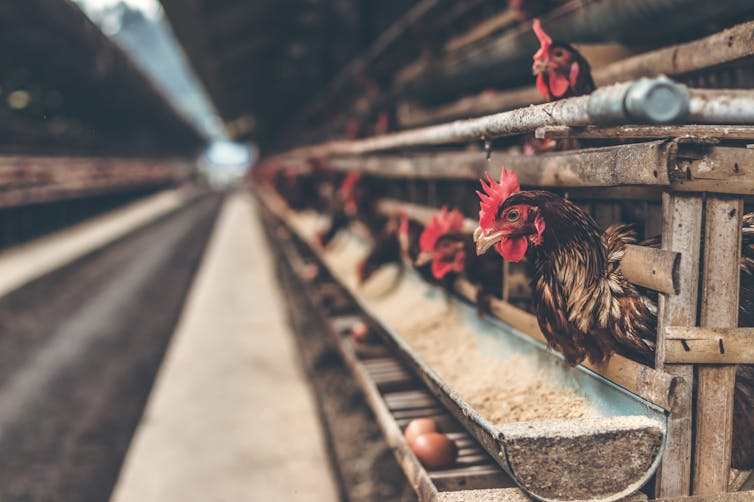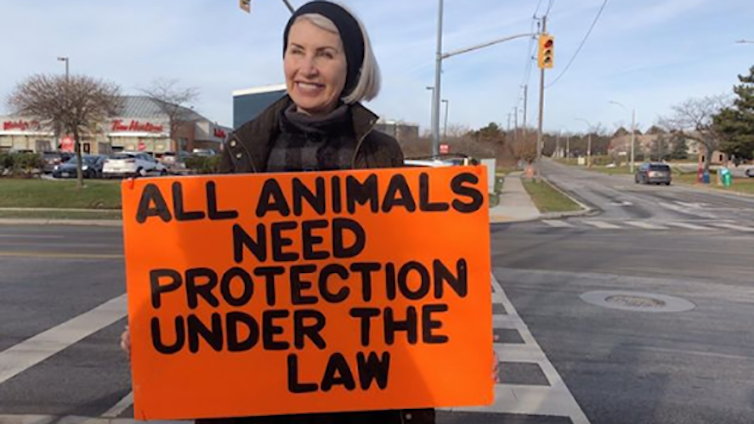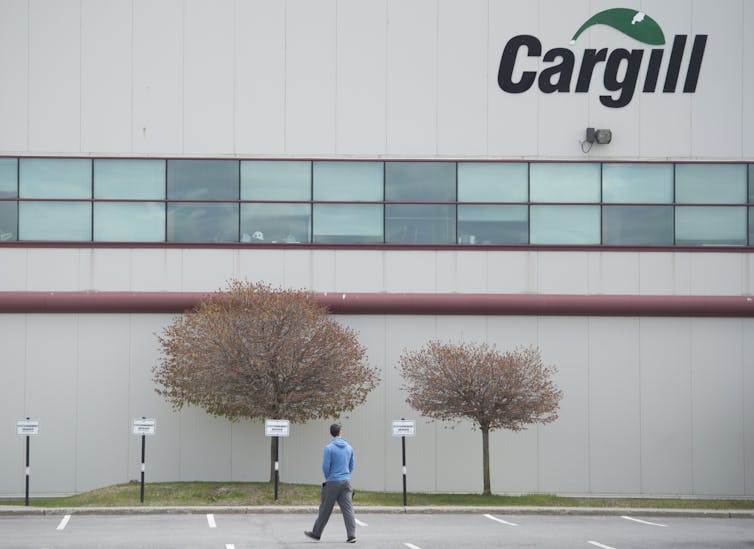
Lisa Kramer, University of Toronto
It will take time for authorities to determine whether the recent death of a woman outside a slaughterhouse in Burlington, Ont., was an accident or homicide. We don’t need to wait for the outcome, however, to know why the animal welfare protester died and what must change to prevent future harm — not only to activists, but also to consumers and businesses.
The events that led to Regan Russell’s death were set in motion last month in the Ontario legislature, when lawmakers passed a sweeping “ag-gag” law that prevents journalists and other investigators from entering animal agriculture facilities to expose illegal activities such as animal cruelty, employee mistreatment or health and safety violations.
Days later, Russell was protesting this same law on public property when she was struck and killed by the driver of a truck transporting pigs in what seems a cruel twist of fate.

Canadians prefer openness
Canadians certainly have an interest in ensuring activities that take place on farms, on transport trucks and in slaughterhouses adhere to our laws and to our sense of decency. Opinions are strikingly aligned on the matter.
In a June 2020 survey of more than 1,000 Ontario residents, 84 per cent said they believe conditions in meat-processing plants should be transparent to the public. Similar numbers said whistle-blowers should be able to expose problems on farms and in food-production facilities related to working conditions, animal abuse and food safety.
But when the newly enacted ag-gag law, Bill 156, comes into force it will ensure the opposite. Just like a similar law introduced in Alberta last year, Ontario’s new legislation will prevent whistle-blowing employees from collecting the type of video evidence that in the past has led to the prosecution and conviction of lawbreakers across Canada, including agricultural workers abusing animals.
This law will also interfere with workers’ rights advocates and journalists who seek to uncover evidence that employees are being mistreated, which these days could prevent authorities from being made aware of cases where slaughterhouse workers, who already face a high risk of COVID-19 infection, may be forced to work without adequate personal protective equipment.

Likewise, this law could prevent employees from exposing information that would help public health authorities pinpoint the origin of pathogens that cause avian flu, swine flu and other infectious diseases that are known to arise in animal confinement facilities.
Additionally, this law will prevent people like Russell from exercising their legal rights to peacefully protest on public property, a right protected by the Canadian Charter of Rights and Freedoms. In her decades of social activism, Russell had exercised that right by advocating for a wide range of social causes and was especially vocal in her opposition to the mistreatment of animals raised as food.
Consumers, businesses look to future
Because many people share Russell’s concerns about animal welfare, and also worry about the large environmental footprint and health risks associated with eating meat, demand for plant-based products has rapidly increased in recent years. Many food-production firms are shifting away from animal-based products, diminishing the purported role for ag-gag laws.
The CEO of Maple Leaf Foods, Michael McCain, projected in 2018 that the tastes of consumers would continue drifting away from meat, signalling his company’s intention to continue satisfying those tastes by producing more plant-based proteins. “We view ourselves as a protein company,” he stated.
The following year, he announced plans to build a $310 million plant-protein food processing facility.
Maple Leaf Foods is not alone in evolving away from animal agriculture. Some of the largest meat-production companies in the world, including colossal Tyson Foods, have introduced plant-based products to their menus of offerings.
One of the hottest new stocks of 2019 was the vegan food-production company Beyond Meat. And the newest plant-based meat company to go public, Canadian firm The Very Good Food Company, saw its share price surge above its initial value in its early days of trading last month.
The federal government stands ready to encourage businesses to adapt to consumers’ preferences. Prime Minister Justin Trudeau recently announced about $100 million in funding for a Winnipeg facility that “will be a world leader in plant-based proteins, and will create good jobs in a fast-growing field.”

This adds to Canada’s Protein Industries Supercluster, an ambitious federal program that aims to add more than $4.5 billion and 4,500 jobs to the Canadian economy over 10 years by supporting crops used in the plant-based foods market. It’s notable that a key intention of the protein supercluster is to improve transparency on Canadian farms, something Ontario’s Bill 156 directly erodes.
Backward-looking policies have no place in our country. Canadian businesses cannot compete on the world stage if consumers do not trust the safety of their products.
But the opacity enshrined in ag-gag laws destroys consumer confidence by its very nature, to the detriment of Canadian companies, their employees and their customers. It will also hide the cruel treatment of animals and workers, which the factory farming industry would do well to eradicate.
Regan Russell died trying to spread that message. I, for one, received it. The ag-gag law must be repealed.![]()
Lisa Kramer, Professor of Finance, University of Toronto
This article is republished from The Conversation under a Creative Commons license. Read the original article.


